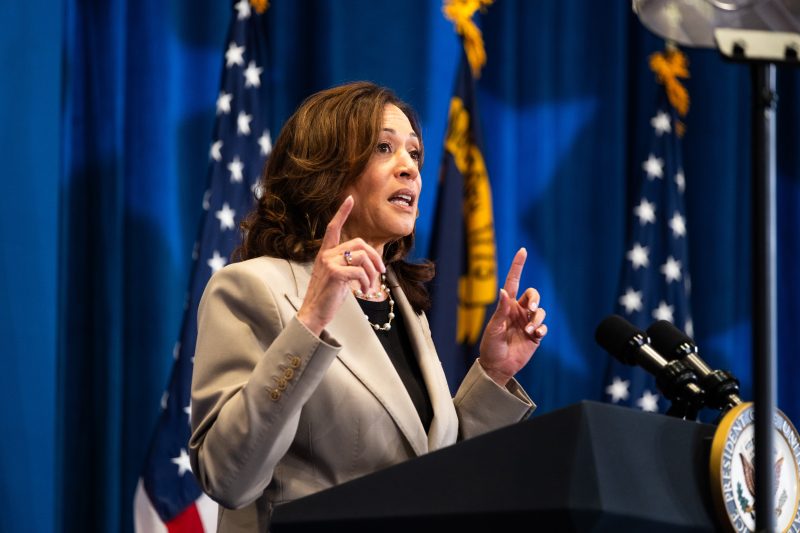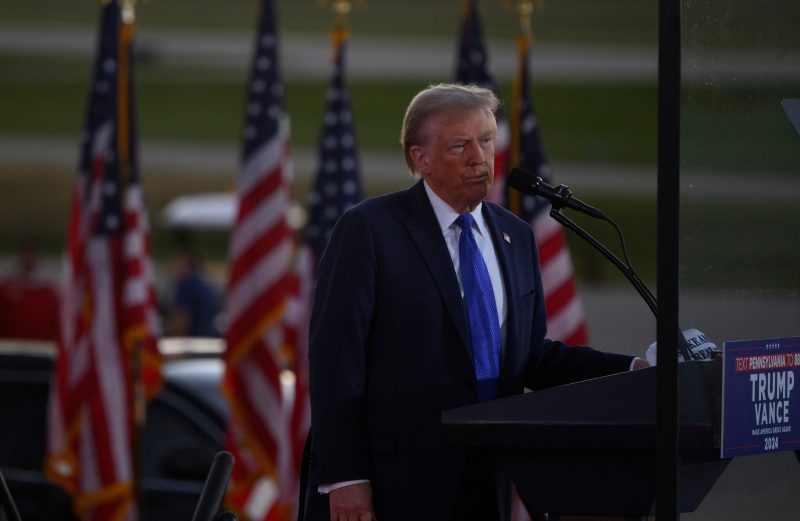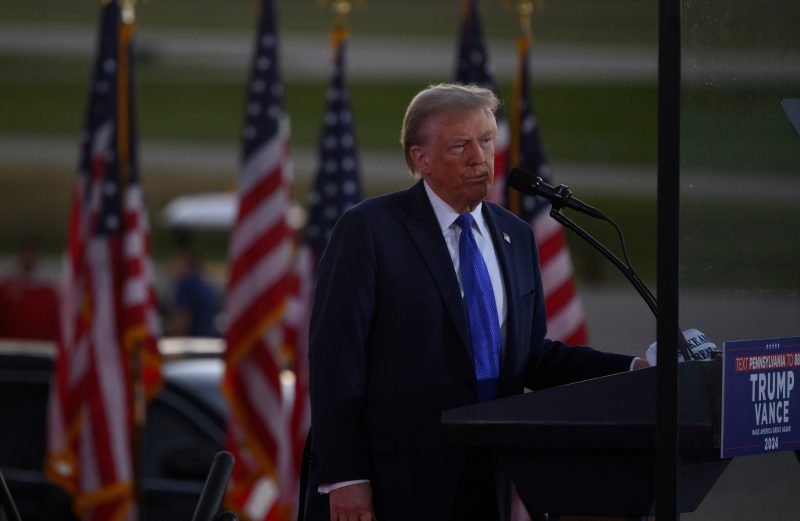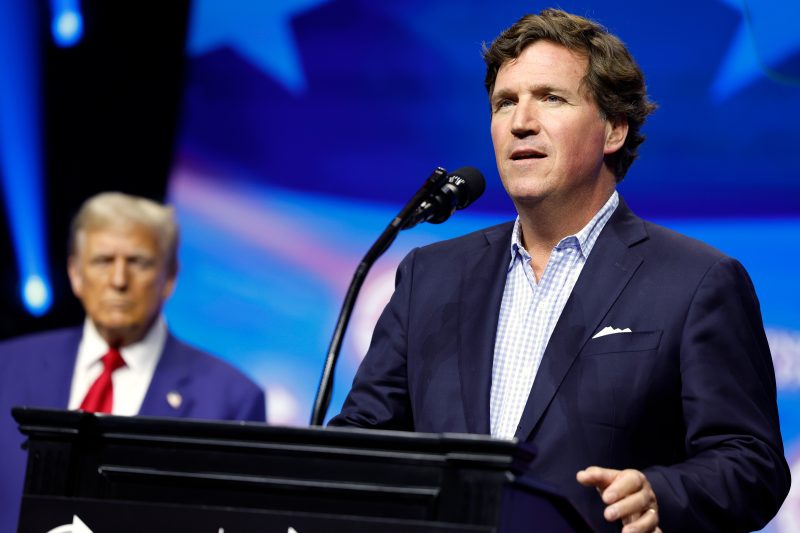
In N.C., some Black voters are uneasy with Harris’s abortion rights focus
CHARLOTTE — Vice President Kamala Harris spent the second anniversary of the Supreme Court’s decision to overturn Roe v. Wade in this Southern city, comparing the people fighting for abortion rights today to the civil rights activists who refused to leave whites-only lunch counters six decades ago.
“We — all of us — are now called upon to advance the promise of freedom, including the freedom of every woman to make decisions about her own body, not the government telling her what to do,” Harris said in June.
But once Air Force Two had flown back to Washington and Democrats here began urging their family, friends and neighbors to vote for her and other Democratic candidates, their cold calls to strangers and polite post-church conversations rarely touched on abortion, Democratic volunteers say.
“We know that’s not a winner down here,” said Rosemary Lawrence, a longtime Democratic activist who is on the social justice ministry at Friendship Missionary Baptist Church in Charlotte. While she personally supports both Harris and reproductive freedom, she said, very little of her phone banking focuses on abortion.
“When we tend to see something as not being popular, we tend to shy away from discussing it, which is not good. But that’s basically where we are,” Lawrence said. “I have not heard anyone [locally] try to make it an issue, and I’m here in the middle of it. We’re making telephone calls tonight, in fact, and I know that’s not one of the talking points.”
Since the Supreme Court issued the Dobbs v. Jackson Women’s Health Organization decision in June 2022 overturning the constitutional right to an abortion, Harris — first as vice president, now as the Democratic presidential nominee — has been the leading voice of a party trying to make abortion access a top voting issue.
Democratic strategists say Harris’s potential to be the first female president gives her a powerful voice on reproductive freedom. The issue fueled the party’s success in the 2022 midterms, they add, and they hope it will pull Democratic and independent voters — including suburban women — to the polls in November.
But that strategy is murkier in this Bible Belt state, according to 16 Democratic leaders, voters and activists interviewed for this article, some speaking on the condition of anonymity to discuss political calculations. Abortion, they say, is a far more nuanced subject here.
Many were hesitant to criticize the strategy of the party’s standard-bearer, and they conceded that a full embrace of abortion rights could be more potent in other parts of the country. But in North Carolina, the social justice movement that undergirds Democratic politics was incubated in the Black church, which is often socially conservative and still sponsors efforts to get “Souls to the Polls” each November.
This illustrates the fissures in a Democratic Party that includes democratic socialists like Rep. Alexandria Ocasio-Cortez (D-N.Y.) on its left flank and President Joe Biden, whose Catholic faith has sometimes conflicted with his party’s abortion rights stance, in its more traditional wing. To win, Harris needs to motivate urban liberals as well as at least some social conservatives unhappy with Republican nominee Donald Trump.
Democrats hope Harris, the first Black woman and person of Asian descent to be vice president, can rebuild the multicultural coalition assembled by former president Barack Obama,who narrowly won North Carolina in 2008. Obama went on to narrowly lose the state in 2012, and it went for Trump in both 2016 and 2020.
But it may not be easy; Harris is a California Democrat who had difficulty corralling the support of Black and Southern Democrats in her 2020 presidential bid.
State Rep. Diamond Staton-Williams, a Democrat and a professional nurse, stressed the sensitivities of the issue in North Carolina. In 2023, Staton-Williams told the story of her own abortion on the floor of the North Carolina General Assembly as it debated a ban on most abortions after 12 weeks of pregnancy — a sweeping measure that ultimately passed over the veto of Democratic Gov. Roy Cooper.
Staton-Williams said most of her conversations on the subject are low-key, especially because many of the contacts in her phone are people from church.
“It’s not me being out there like Jane Fonda or something,” she said, speaking of the Oscar-winning actress who has been at times controversially outspoken about abortion and other liberal causes. “It’s different, and the approach is different. It’s just like code-switching. If I lived in [Los Angeles], my conversation is absolutely going to be different. But we also know you’ve got to read the room, you’ve got to know your audience and know who you’re talking to.”
Aimy Steele, director of the New North Carolina Project, which focuses on minority voter engagement, said she supports abortion rights — but she is also a pastor’s wife, and “as a church girl, it’s always going to be a taboo.”
“In North Carolina, the [Harris] campaign should absolutely acknowledge that the Lord and Jesus Christ is centered in this Bible Belt, and they’d better acknowledge faith and they’d better acknowledge that people do care about their faith, and their faith informs decisions,” Steele said.
Nationwide, support for abortion rights is strong among all Democrats, but polls suggest the party’s Black members embrace it less. In a recent Washington Post-Ipsos poll, for example, 96 percent of White Democrats opposed the Dobbs decision, compared with 85 percent of Black Democrats.
The abortion rights issue has been powering Democratic wins since Dobbs, and Trump has been moderating his position on it, although it was his Supreme Court appointments that enabled the ruling.
“President Trump has long been consistent in supporting the rights of states to make decisions on abortion and has been very clear that he will NOT sign a federal ban when he is back in the White House,” said Karoline Leavitt, the Trump campaign’s national press secretary. “President Trump also supports universal access to contraception and IVF. Contrarily, Kamala Harris and the Democrats are radically out of touch with the majority of Americans in their support for abortion up until birth and forcing taxpayers to fund it.”
The Harris campaign on Friday announced a “Fighting for Reproductive Freedom” bus tour, starting with an event Tuesday in Palm Beach, Fla., near Trump’s home in Mar-a-Lago. In a statement, the Harris-Walz campaign said that abortion bans have hurt North Carolina women, particularly those facing with maternal health disparities, and that Harris is fighting to prevent a further erosion of their rights.
“Women in North Carolina know we’re living under an abortion ban that’s putting lives at risk, exacerbating the Black maternal mortality crisis, and making providers flee the state, all because of Donald Trump,” the statement said. “We know things will only get worse if he’s re-elected.”
Harris’s allies concede that abortion is a complicated issue for many voters, including in North Carolina, but noted that overall reproductive rights are hugely popular her as well as nationally.
“Just the word ‘abortion’ makes a lot of people bristle, but it is something we have to talk about,” said Claire Kempner, who noted that she is running for a statehouse seat because of North Carolina’s 12-week abortion ban. “I do not think I’m unique. I am one of many who got more involved because of abortion.”
Harris and her supporters also say Dobbs’s impact is spreading far beyond abortion. In February, the Alabama Supreme Court ruled that frozen embryos are people, meaning anyone who destroys them could be legally liable. That, in turn, imperils in vitro fertilization, affecting hundreds of thousands of would-be parents seeking to conceive a child.
Trump announced on Thursday that as president, he would require the government or private insurers to cover all IVF costs, though he did not provide details. But Harris issued a dark warning about Trump’s priorities during her Aug. 22 acceptance speech at the Democratic National Convention.
“He and his allies would limit access to birth control, ban medication abortion and enact a nationwide abortion ban, with or without Congress,” she said. “And get this. Get this. He plans to create a national antiabortion coordinator and force states to report on women’s miscarriages and abortions. Simply put, they are out of their minds.”
That reference to an “antiabortion coordinator” comes from Project 2025, a document assembled by a coalition of conservative groups as an agenda for the next Republican administration. The document calls for the naming of a “special representative for domestic women’s health” to “provide a clear focal point for all issues related to protecting life and serving families.”
Trump has sought to distance himself Project 2025, but many of its proposals were written by his allies or veterans of his administration.
At the convention, Harris’s warning was met with thunderous applause. For many North Carolina Democrats, the excitement over her candidacy could overcome concern over social issues. Even so, some voters’ discomfort with abortion rights could have a real impact in the state, analysts said.
“It’s almost a crosscutting pressure,” said Michael Bitzer, a professor of politics and history at Catawba College in Salisbury, N.C. “People are saying, ‘We’ve got this historic candidate, we are in her lane, but maybe there’s an issue that is maybe pulling us back.’” He added, “The issue of abortion, the issue of gay rights, are kind of those trepidation policies where people may be supportive but are not going to go full-out, or even perhaps may have some hesitance.”
Democrats have won some statewide elections in North Carolina — the governor and attorney general are Democratic — but the state remains strongly Republican, especially in presidential races. Since 2008, Democrats have been tantalized by the prospect of recapturing its electoral votes.
Harris has visited North Carolina a half-dozen times this year, and two of those trips focused on abortion rights, which has been part of her vice-presidential portfolio since 2022. After word leaked in May 2022 that the Supreme Court was about to overturn Roe, Biden’s then-chief of staff, Ron Klain, asked Harris to be the White House’s chief messenger on abortion.
Since then, Harris has toured an abortion clinic in Minnesota and engaged in a reproductive freedom tour across the country. She visited Tallahassee to criticize Florida’s decision to beef up its abortion ban. Over the past two years, and especially after becoming the Democratic nominee, she has crystallized her argument, framing abortion rights as one of the many freedoms Republicans would ostensibly curtail if given the chance.
Steele, the leader of the voter engagement group, said that mixed emotions about abortion notwithstanding, many Black women in North Carolina support the cause of putting Harris into the White House. “If we support VP Harris, then there’s this thought that maybe we will not be favored by God, right?” she said, conveying the views of some she has spoken with. “But we’ve also never had a Black female president.”
Steele said Black churchgoers often stress that they are electing a president, not a pastor. “They say, ‘You know what? That’s between her and God, and me and God. We’re going to allow her a pass. We understand what we’re supposed to do. We understand the assignment.’”
Emily Guskin contributed to this report.



